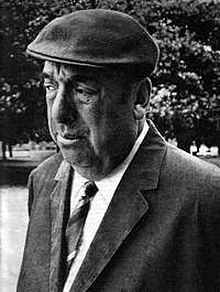 Linda Rodriguez is the author of the recently released mystery novel Every Last Secret, but she’s also one of the most passionate advocates for Latino literature and other writers of color. Rodriguez’s blog features “Books of Interest by Writers of Color” and interviews with writers such as Joy Castro. She is also vice president of the Latino Writers Collective in Kansas City.
Linda Rodriguez is the author of the recently released mystery novel Every Last Secret, but she’s also one of the most passionate advocates for Latino literature and other writers of color. Rodriguez’s blog features “Books of Interest by Writers of Color” and interviews with writers such as Joy Castro. She is also vice president of the Latino Writers Collective in Kansas City.
Every Last Secret won St. Martin’s/Malice Domestic Best First Traditional Mystery Novel Competition and was touted by Barnes & Noble as a mystery must-read for April. She also writes poetry and she recently edited Woven Voices: 3 Generations of Puertorriqueña Poets Look at Their American Lives (Scapegoat Press). She can be found on Facebook and Twitter.
 Q: Tell me about your latest book, Every Last Secret.
Q: Tell me about your latest book, Every Last Secret.
A: Half-Cherokee Marquitta “Skeet” Bannion thought she was leaving her troubles behind when she fled the stress of being the highest ranking woman on the Kansas City Police Department, a jealous cop ex-husband who didn’t want to let go, and a disgraced alcoholic ex-cop father. Moving to a small town to be chief of the campus police force, she builds a life outside of police work. She might even begin a new relationship with the amiable Brewster police chief.
All of this is threatened when the student editor of the college newspaper is found murdered on campus. Skeet must track down the killer, following trails that lead to some of the most powerful people in the university. In the midst of her investigation, Skeet takes up responsibility for a vulnerable teenager as her ex-husband and seriously ailing father wind up back on her hands. Time is running out, and college administrators demand she conceal all college involvement in the murder, but Skeet will not stop until she’s unraveled every last secret.
Every Last Secret is the first in a series with Skeet Bannion as the protagonist. Skeet, like most of us, has some internal issues she has to learn to deal with. Each book is a complete mystery novel in itself, but I see the entire series as a kind of meta-novel following Skeet’s growth as a person. I like Julia Spencer-Fleming’s categorization of “traditional mystery-thriller” as a description. Every Last Secret is, indeed, a traditional mystery set in a small town, but the small town is right outside a big, dangerous city, and there’s a darker edge to this character, this book, and the series as a whole.
Q: What inspired you to go into writing?
Writing saved my life. I had a troubled childhood with parental involvement in violence and substance abuse. I’ve seen the sad ends of many who came from similar backgrounds. Reading books and writing poetry and journals made a difference for me, I’m sure. I come from several long lines of storytellers. The oral tradition was rich in my family, though they were poor in so much else. Writing was a door that opened for me at a young age.
I write crime fiction because it’s one genre of literature that is looking at the problems in our society—where they come from and what they do to us. As a child, I lived at close quarters with evil. I know too well that the possibility for it is inherent in each of us. I’m interested in exploring why some people fall into it and others in the same circumstance don’t and what this society does to and for people.
Now that the second Skeet Bannion book is in production, I’m working on a new series as well. This one will look at the Chicano community in Kansas City. The Skeet books are about being a mixed-blood Indian living a life surrounded by Anglo culture and the difficulties of remaining Indian under those circumstances, circumstances that many live under in American cities far from the reservations and their people. The new series will look at a vibrant Midwestern Chicano community that few people elsewhere even realize exists. Its protagonists are living in the heart of their community, and although at times that frustrates them, they draw real strength from it, even as they are faced with questions of assimilation and success in the Anglo world.
Q: Your blog encourages readers to read writers of color. What can we do to encourage more people to read Latino literature?
The first thing we can do is to bring the names and work of more Latino writers to the public. I started the series, “Books of Interest by Writers of Color,” because as a member of the Latino Writers Collective, after our readings I was often asked by parents, teachers, and librarians how to find out about Latino writers for their kids and their own reading. These were people of good will, often Latino themselves, but they couldn’t find much beyond the big names like Sandra Cisneros and Junot Díaz.
Latino writers are not published as much and are not reviewed as much as Anglo writers. This is changing, but very slowly. We actually have a large number of fine Latino writers, but if they’re published, it will usually be by one of a handful of small presses or university presses. These presses deserve all our gratitude and support. But they usually don’t have the budgets or staff to do much in the way of promotion. So a relatively few number of people actually hear about these books when they’re published. Trying to make Latino literature more visible are a handful of projects like Letras Latinas and The Latino Poetry Review run by Francisco Aragón out of the University of Notre Dame and LatinoStories.com run by Jose B. Gonzalez—and of course, The Hispanic Reader. Also, we are fortunate to have the gifted writer and critic Rigoberto Gonzalez, who reviews many Latino authors and who campaigns for more Latino writers to review the books of others.
One thing readers can do is to tell others about good Latino writers when they find them. They can also go on Amazon and Barnes & Noble and Goodreads websites and write short reviews of the books by Latino authors. I’ve been fortunate enough to have been reviewed in all the major review publications and over twenty newspapers across the country, but my publishers tell me that those reviews don’t sell as many books as a simple review on Amazon, B&N, or Goodreads. A third thing readers can do is to ask their library systems to order the books of Latino authors—and then check them out and get others to check them out. Also, support those small and university presses that have supported our writers, so they can continue to bring to us the best new Latino writers.
 • In the 2005 children’s book Playing Lotería/El Juego De La Lotería by René Colato Laínez, a young boy learns to speak Spanish and grows closer to his abuela when he visits her and starts learning the riddles in the lotería cards.
• In the 2005 children’s book Playing Lotería/El Juego De La Lotería by René Colato Laínez, a young boy learns to speak Spanish and grows closer to his abuela when he visits her and starts learning the riddles in the lotería cards. • Poet Juan Felipe Herrera created poems for each card and artist Artemio Rodriguez created contemporary lithographs as illustrations for the 2001 book Loteria Cards and Fortune Poems: A Book of Lives.
• Poet Juan Felipe Herrera created poems for each card and artist Artemio Rodriguez created contemporary lithographs as illustrations for the 2001 book Loteria Cards and Fortune Poems: A Book of Lives. • The 2004 gift book ¡Loteria! features an essay about the culture of the game by noted Mexican-American scholar Ilan Stavans and illustrations by Teresa Villegas. Villegas’s website has a great section about the game, including its history.
• The 2004 gift book ¡Loteria! features an essay about the culture of the game by noted Mexican-American scholar Ilan Stavans and illustrations by Teresa Villegas. Villegas’s website has a great section about the game, including its history.
 • Lotería and Other Stories by Rubén Mendoza is a 1998 collection of short stories structured around the game. In the 2005 novel ¡Caramba¡ by Nina Marie Martinez, the card game is used to illustrate two women’s adventures in getting a deceased father’s body back from Mexico.
• Lotería and Other Stories by Rubén Mendoza is a 1998 collection of short stories structured around the game. In the 2005 novel ¡Caramba¡ by Nina Marie Martinez, the card game is used to illustrate two women’s adventures in getting a deceased father’s body back from Mexico. • Released this year, Lotería by Mario Alberto Zambrano, shows how a teenager communicates about the abuse in her family through the game. Each chapter begins with a gorgeous, full color illustration, done by Jarrod Taylor, that differ from the traditional lotería game, but carry the same spirit.
• Released this year, Lotería by Mario Alberto Zambrano, shows how a teenager communicates about the abuse in her family through the game. Each chapter begins with a gorgeous, full color illustration, done by Jarrod Taylor, that differ from the traditional lotería game, but carry the same spirit.




























